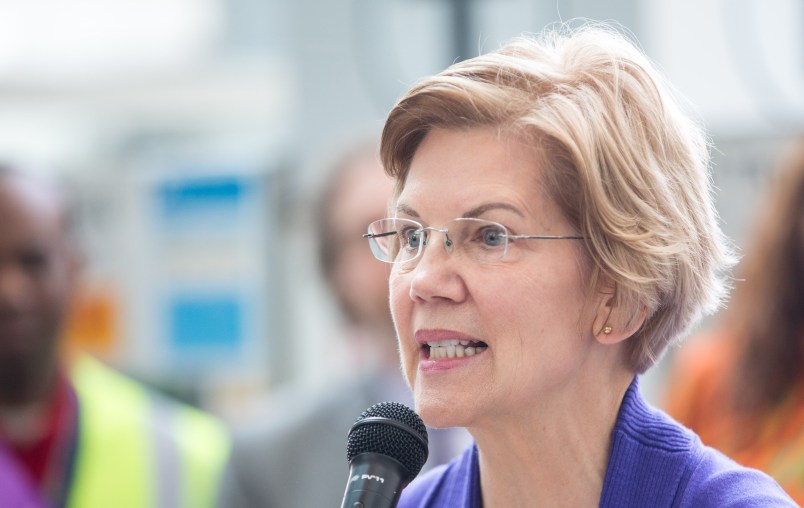Sen. Elizabeth Warren (D-MA) took a shot Tuesday at former Starbucks CEO Howard Schultz’s chances of mounting a serious presidential campaign, the latest salvo in a budding feud between the progressive senator and her potential 2020 rival.
“We have a billionaire who says he wants to jump into the race and the first issue he’s raised is ‘no new taxes on billionaires.’ Let’s see where that goes,” she replied derisively when TPM asked if she was worried Schultz could play a spoiler role in the 2020 presidential election.
The swipe followed a public back-and-forth between Warren and Schultz, who is toying with an independent run for president that has alarmed many Democrats who worry he could give President Trump an easier path to reelection by siphoning votes from the Democratic nominee.
Schultz started the fight, calling Warren’s plan to create a new tax on the capital assets of wealthy households “ridiculous” during a Tuesday morning interview with NPR.
“When I see Elizabeth Warren come out with a ridiculous plan of taxing wealthy people a surtax of 2 percent because it makes a good headline, or sends out a tweet, when she knows for a fact that is not something that’s ever going to be passed, this is what’s wrong. You can’t just attack these things in a punitive way by punishing people,” he said.
Warren, one of Democrats’ top 2020 candidates, fired back on twitter:
What's “ridiculous” is billionaires who think they can buy the presidency to keep the system rigged for themselves while opportunity slips away for everyone else. The top 0.1%, who'd pay my #UltraMillionaireTax, own about the same wealth as 90% of America. It's time for change. https://t.co/D04G5fNvpa
— Elizabeth Warren (@ewarren) January 29, 2019
Warren also defended her economic proposals during a brief gaggle with Senate reporters.
“It’s clear we need to rethink our financial accounting for the United States. Only in an upside-down political system would we treat spending $10 million to build a building as an expense, as if the money had been burned rather than we ended up with an asset worth $100 million. Also, there are investments that produce real value over time. And our government accounting system should take account of it. And the current pay-go just doesn’t make any sense and doesn’t help us build a stronger economy going forward,” she said.






